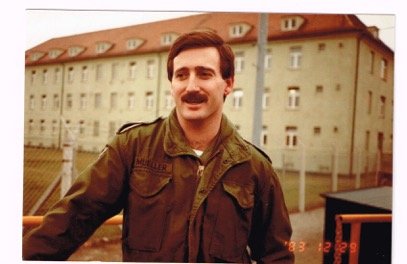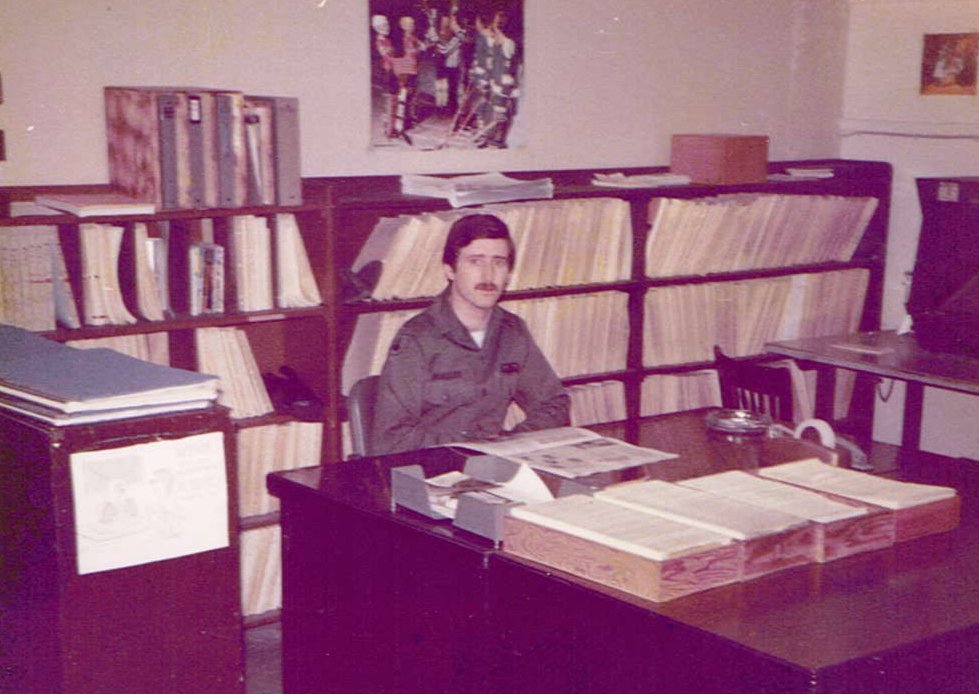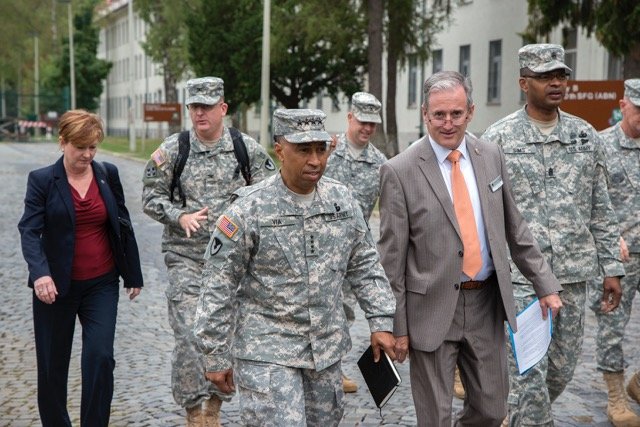
By John Reese
USAG Stuttgart Public Affairs
In July 1977, former Bundeswehr soldat Karl-Heinz Mueller began a lifetime of service with the U.S. government. At the end of April, 2018, he will conclude his career as the director of the Logistics Readiness Center-Stuttgart.
“He is a patriarch of this community,” said Supply and Services chief Cecil D. Moore, LRC-Stuttgart. “We may have discovered the one irreplaceable leader.”
The native of Augsburg, Bavaria, plans to retire from his position as the LRC-Stuttgart director after 41 years of combined Army and civilian service.
“Time to slow down, enjoy life – hopefully for many years to come – with family and friends, and tour all of the great places first in Germany with the bicycle,” Mueller said.
He began as a supply tech with the 8904th Civilian Support Group, a direct support maintenance company during the Cold War. Mueller’s unit supported all tactical units south of Ulm, and the annual REFORGER (Return of Forces to Germany) exercise that saw upwards of 125,000 American Soldiers take to the fields and roads of southern Deutschland. It was a busy time, and it left Mueller with many good memories.
“Command teams looked for nice, small villages with a lot of farmers to set up their posts, with farmers claiming their ‘manoever schaden’ (maneuver damage, such as when a fence or chicken was run over by an M-60 tank),” Mueller said.
As a young supply tech in 1981, Mueller was sent to Phoenix, Arizona, on his first temporary duty assignment to the U.S. He spent five weeks training with Honeywell-Bull on a then-new fielded, decentralized, automated service support system. During that TDY, he enjoyed a different lifestyle than the one he was brought up with in Germany, learning about country music and square dancing.

In 1986, he worked as a supply systems analyst for a logistics field office at the Regional Supply Support Activity.
“It was a different world – I could not believe what we had to purchase, all of the recreational stuff and special items for the Special Operations Forces guys,” Mueller said. “When I heard that we were to purchase geese feed and dog food, I first thought it must be a joke. It was not; the geese feed was for the geese guarding the Pershing missile sites.”
The noisy honking of geese, when disturbed, has made them akin to guard dogs since Roman times.
“I’ve known Karl Heinz Mueller since 1986, when he was working at Augsburg,” said Michael Lansdale, LRC-Stuttgart. “When he started working for the Directorate of Logistics in Stuttgart, as manager of the supply and support division, he was always very loyal, not only to the mission but also to the employees. As LRC director, he has continued to be supportive in every way.”

Another memorable logistics challenge involved mess wine for chaplains.
“The chaplains’ request was for wine out of Süd Tirol, but official mess wine is from California. Our chaplains refused to sign for a pallet of Californian wine,” Mueller recalled.
A carton of wine fell off the ramp, and he and the other logistics warriors had to taste it to ensure it was okay.
By 1992, Mueller had been promoted to maintenance manager of the Consolidated Maintenance Center in his hometown of Augsburg. The center had about 160 employees. However, due to automation and downsizing, it was down to only 24 employees by 1998. The reductions in force were the greatest challenges, Mueller recalled.
Mueller joined the Stuttgart military community as a local national in 1999 as a logistics management specialist, later becoming the chief of supply and services.
“I was one of a few local nationals graduating from the Sustaining Base Leadership and Management Program at Fort Belvoir in 2002,” Mueller said.
In 2010, he became the director of Logistics at what is now called the LRC, working out of the former VII Corps Headquarters on Kelley Barracks until U.S. Africa Command stood up in 2007. LRC-Stuttgart, 405th Army Field Support Brigade-Europe & Africa, is now in Bldg. 2953 on Panzer Kaserne.
Mueller was able to place all of the Patch dining facility team within the community without anyone losing his job. The DFAC served 800 customers daily. He still believes that closure of the Patch DFAC was not a right move, as it served almost 800 customers daily

“The good news was we placed all members of the team within the community without a reduction in force. He also helped employees with new jobs after the closure of the Self-service Supply Center, also on Patch.
“Mr. Mueller has been the pinnacle of the LRC’s success. He is the sounding board and mentor for the LRC Stuttgart,” Moore said. “He will be missed by the community and the 405th AFSB, and the Army Sustainment Command as well.”
One of Mueller’s final projects, the installation of state-of-the-art equipment in the Classified Document Destruction Facility, will have its ribbon-cutting this summer without him.
“The good thing in all this years is I never ever had a negative experience with direct leadership; I’ve had great relations and support with all leadership teams, commanders and directors,” Mueller said, adding he’s still close friends with his former bosses.
“The digital world completely changed in these 41 years, from ledgers and punch cards to micro fiche, floppy disks, magnetic tapes, and before email, mail via daily courier. It’s now fully automated with laptops, smart phones, video teleconferencing – you name it,” Mueller said. “And this is not the end.”
